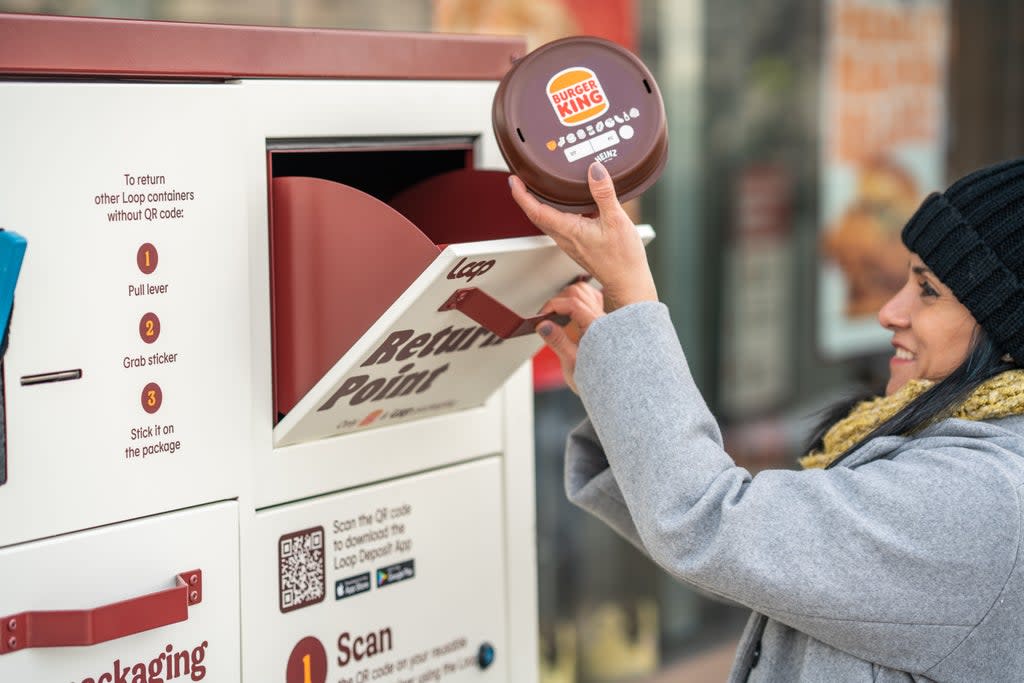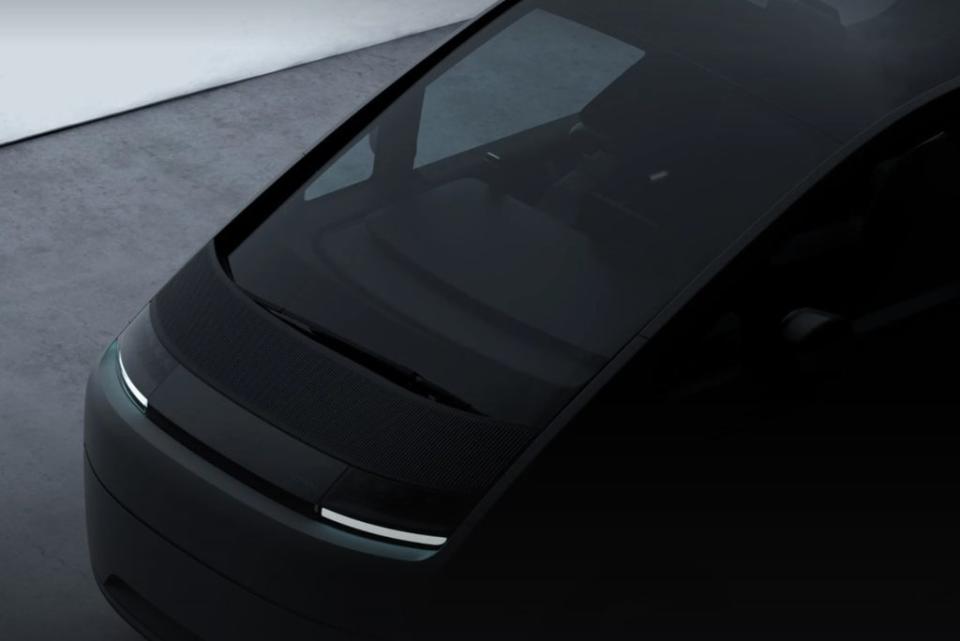Reusable burger boxes and robots that weed: How innovation is surging around the climate crisis

Reusable burger boxes
Burger King UK has become the first fast-food company in the UK to trial a new range of re-usable and returnable packaging for its burgers.
The pilot project, in partnership with global re-use platform, Loop, created a re-usable burger container, known as a ‘clamshell’, and a re-usable cup.
The trial will has been rolled out across five restaurants in Ipswich and Newmarket until September and will potentially be put in place across the country if it proves popular.
Customers will have the option to pay a £1 deposit for a re-usable cup or container instead of using throwaway packaging, helping reduce single-use packaging consumption.
When customers return the re-usable cup or container, they can do so by downloading the Loop app, scanning the barcode on either the cup or container and returning it into a Loop bin. Loop bins will be placed outside selected Burger King restaurants where the trials are taking place, as well as in other locations found via the Loop app.
Customers who return their cups or containers will be refunded their deposit, with all returned cups or containers being professionally cleaned using Loop’s cleaning system and then put back into the cycle.
Rise of the machines
Artificial intelligence is being used to revolutionise the fast-fashion industry by gathering data so style-conscious customers can make informed decisions about what they buy.
Sustainability data is complicated as it comes from many different sources and varies dramatically in quality.
However, AI helps to collate data into easily comparable data sets by automatically analysing and interpreting vast quantities of information, identifying anomalies, and delivering sound recommendations.
For example, a customer can use compliance tools to ensure the supplier meets sustainability criteria on slave labour, gender equality, workplace quality, water pollution, greenhouse gas emissions, renewable energy use, and waste management.
“When you put AI in the content of sustainability analytics it can be highly useful from a compliance perspective,” said Dan Botterill of climate tech firm Rio ESG.
“Technology enables transparency and helps to force companies to change. As a company can see its supply chain, so consumers can see how companies are behaving. They can pressure companies to drive change, pressure leadership, push from bottom up.”

Uber-efficient taxis
London-based electric vehicle firm Arrival has developed a car designed specifically for the ride hailing industry.
Arrival car was developed with input from Uber drivers and aims to improve air quality in urban environments where most ride-hailing mileage occurs.
In London alone, 9,400 premature deaths a year are attributed to poor air quality, at a cost of between £1.4 and £3.7 billion to the health service.
Tom Elvidge, EVP vehicle platforms at Arrival. “Electrifying ride-hailing will play a crucial role in reducing the emissions of vehicles in cities globally, providing a sustainable, clean multi-modal transportation system for communities.”
The company is also developing an electric van and bus.
Energy harvesting devices
Humanity’s dependence on batteries is growing. Battery life has improved significantly, and energy density has been boosted to new levels previously thought unreachable, but these advancements have come at a cost.
Battery improvements are only possible thanks to an increasingly exotic list of new compounds; these compounds come from mines across the world that are dangerous, unethical working environments that have a devastating effect on the environment.
Tech firm AND Technology Research is researching ways to use alternative sources of energy such as the sun, vibrations within our own body, the radio waves produced by your mobile phone, or the heat of a laptop battery after a day’s work.
By utilising multiple power sources, these devices are set to make intelligent decisions on when to charge in different environments using an AI algorithm.
Dr Nicola Thorn of AND said: “We believe self-powering, battery-less devices will be the next game-changing technology to be unlocked.
“I truly believe it won’t be long before more and more products are powered through, at least partially, energy harvesting techniques.”
Insect-based animal feed
Insects have long been put forward as a renewable source of protein, but getting humans to eat them is, at best, a difficult sell.
But British start-up Better Origin has developed the X1, an insect farm that converts local food waste into animal feed. The insect larvae that feed on surplus nutrients are fed to livestock.
Fotis Fotiadis, CEO and co-founder of Better Origin, said: “Until now there was no accessible way for food producers to turn food surplus back into the food chain. We’re now delivering a vital solution to this global opportunity.
In nature, insects convert waste into essential nutrients in a complete ‘no-waste’ cycle, but this link is absent from the modern food chain.
“Our technology uses natural processes to fix the broken system. We’re restoring insects as the missing link.”
Weeding robots
A US firm has developed a robot that can weed up to three acres of farmland per day.
Aigen is building solar-powered, autonomous robots that go through a fields and can tell between a plant and weeds using AI.
It then uses mechanical arms to pluck out the offending weeds, and the AI can be trained to leave benign weeds that help hold carbon. The team is testing its prototype with the help of sugar beet farmers in Idaho.

